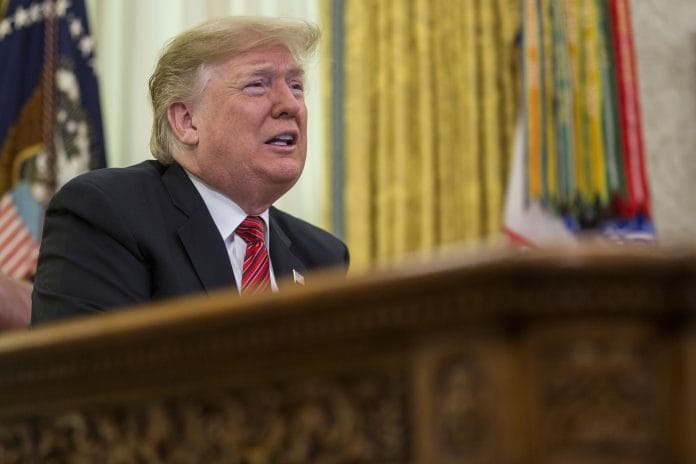China’s fascination with Christmas and a British national who was abducted 32 years ago is coming back home.
Amid the US government shutdown, one Christmas Eve tradition that appears unaffected is the North American Aerospace Defence Command (NORAD) tracks Santa programme.
It involves fielding calls from children, keen to find out where Santa has reached while on his way to delivering gifts. According to this report, the tracker wasn’t affected by the government shutdown because it is run by volunteers at the Peterson Air Force Base in Colorado and funded by the Department of Defence’s budget that was approved earlier this year.
The event became a Christmas Eve tradition “after a child mistakenly called the forerunner to the North American Aerospace Defence Command in 1955 and asked to speak to Santa”.
This year, President Donald Trump and first lady Melania Trump participated in the event before attending Christmas Eve services at the Washington National Cathedral.
Believing in Santa at 7 is "marginal, right?" The Trumps take calls from kids on Christmas Eve https://t.co/ZN3O7ZHfkj pic.twitter.com/sgYFKYM2vw
— TIME (@TIME) December 25, 2018
Donald Trump in conversation with seven-year-old boy Coleman asked, “Are you still a believer in Santa?” And after listening for a while, he added, “Because, at seven, it’s marginal, right?”
He again stopped for a while and said, “Well, you just enjoy yourself.”
Trump later tweeted saying that tracking Santa is one his favourite traditions.
Melania Trump, on the other hand, told a caller that Santa is in Sahara, before later adding that he had moved to Morocco and would be at the caller’s place by Christmas morning.
British national flees Yemen 32 years after ‘abduction’
Safiah Saleh, a British national who was allegedly abducted by her father and taken to war-torn Yemen 32 years ago, has fled to Egypt, The Guardian reports.
Saleh was 18 months old when her father had, in 1986, taken her and her two older sisters to Yemen.
Her mother Jackie Saleh from Cardiff raised more than £7,000 from a campaign to bring her youngest daughter back to the UK.
Saleh is now married and has four children. According to the report, she lived in poverty in the city of Hodeidah, which is being bombed by Saudi Arabian warplanes.
The Welsh assembly member for South Wales Central, Neil McEvoy, who helped Jackie said on Christmas Eve, “Safia Saleh and her family landed safely in Cairo and they are out of Yemen.”
Chinese drama tops the list of most Googled show
A Chinese drama, Yanxi Palace, has been the most googled show globally in 2018.
According to the search engine analytics, the show was most googled from Asian regions such as Singapore, Malaysia, Brunei and Hong Kong.
The series was premiered in July and since then it has been watched more than 15 billion times on iQiyi, a Netflix-equivalent site.
During summer, it was also the most watched online drama in China for 39 consecutive days.
Chinese are building old European castles, and they look beautiful
The Chinese have a new craze — building fancy castles. These castles are built far from the city for tourism as well as for those seeking luxury retreats.
According to Global Times, these castles have become a good spot for wedding photography as well as for filming. They have been inspired by European palaces.
For example, the Jilong Castle Country Club, a four-star hotel located at the centre of a remote lake in Southwest China’s Guizhou Province looks quite similar to the Bavarian Neuschwanstein Castle in Germany.
Do you believe these gorgeous #castles are all in #China? Wealthy Chinese have been building #medieval fortresses around country as exotic novelties. #travel #photography https://t.co/opdG2Qithi pic.twitter.com/fNSurr6XL3
— Global Times (@globaltimesnews) December 25, 2018
Another castle, which looks and also named as “Harry Potter” castle at Hebei academy is also a Gothic-style castle in the Hebei province in Northern China.
The building is a part of the Hebei Academy of Fine Arts, but it also draws a large number of tourists because of its Hogwarts structure.
The campus has several castles, some of which serve as hotels.
Castles are not common in China. During the Qin Dynasty, local chiefs were banned from building castles, with only ethnic minorities allowed to do so.
The castle building is being attributed to new wealth boom in China, which has led to an emerging class that believes in mimicking “old money” qualities.
Jiang Haisheng, head of the Journalism and Communication Department at Shandong University of Political Science and Law, said, “For many Chinese people, castles are exotic and attractive, so they have been built to draw tourists. It is not necessary to say China lacks confidence in culture when seeing castles”.






